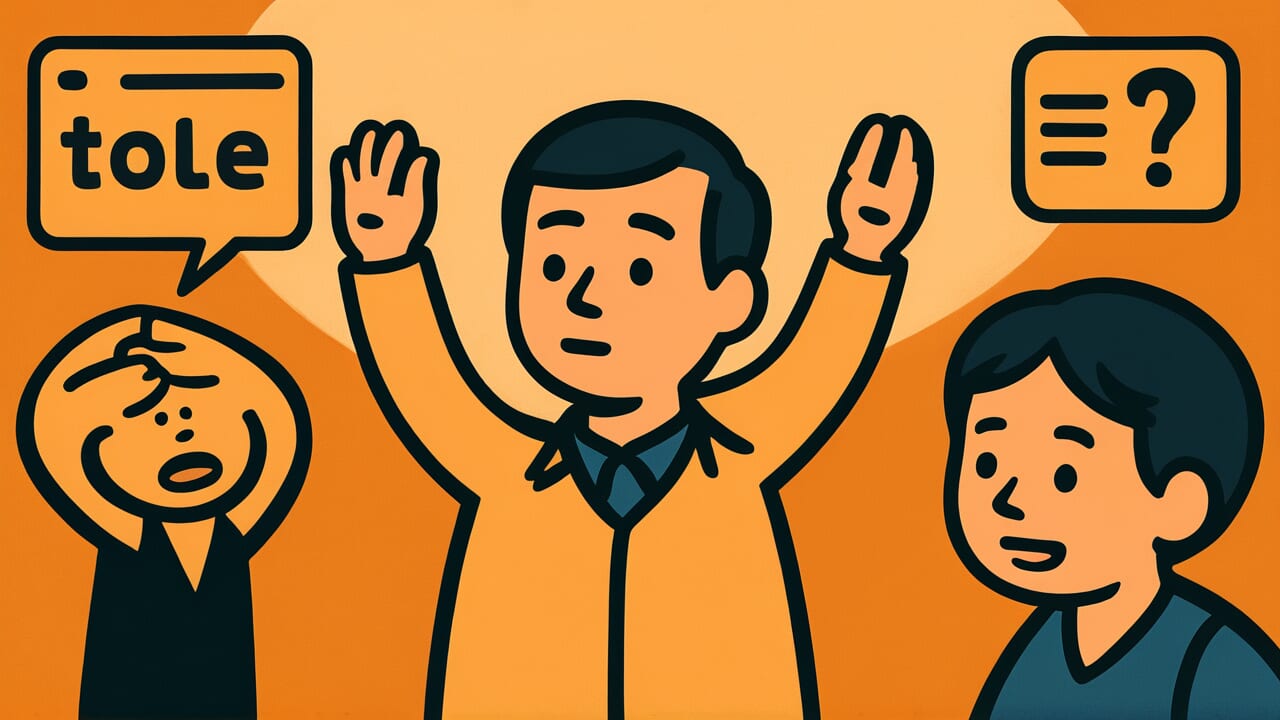How to Read “If you beg for three days, you cannot forget it”
Kojiki wo mikka sureba wasurerarenu
Meaning of “If you beg for three days, you cannot forget it”
This proverb describes human nature. Once you get used to an easy life, you cannot return to a harder one.
Even three days is enough time to experience this change. When you live by receiving charity without working, you remember how easy it feels.
After that, working hard again becomes very difficult. This applies to all “easy paths,” not just begging.
People use this proverb as a warning. It tells someone considering an easy choice that going back is harder than they think.
Humans naturally adapt to comfort. Once your living standard rises, lowering it causes real mental pain.
Even today, this lesson remains valuable. It helps us reconsider our lifestyle choices and attitudes.
Origin and Etymology
No clear written records explain this proverb’s origin. However, people likely used it during the Edo period.
The word “kojiki” means people who beg for a living. In this proverb, it represents more than just poverty.
It symbolizes an “easy life” where you receive charity without working. In that society, beggars were poor but also free from work obligations.
“Three days” appears often in Japanese proverbs. It means “a very short period.”
Other examples include “mikka bouzu” (three-day monk) and “ishi no ue nimo sannen” (three years on a stone). Using numbers to express time is common in Japanese language culture.
This proverb likely emerged from two observations. First, humans adapt quickly. Second, this adaptation can lead to moral decline.
Edo period society valued strict social classes and hard work. People needed warnings about the danger of getting used to easy living.
In a culture that saw work as virtue, this expression warned against taking the easy path. People passed it down through generations as an important lesson.
Usage Examples
- I got so used to working from home that I can’t go back to commuting every day. It’s exactly like “if you beg for three days, you cannot forget it”
- Once you know convenient living, you can’t return to the old way. “If you beg for three days, you cannot forget it” is really true
Universal Wisdom
“If you beg for three days, you cannot forget it” reveals something sharp about human nature. It shows our ability to adapt and the double-edged sword this creates.
Humans have amazing power to adapt to their environment. We can get used to any difficult situation over time.
But this adaptation works the same way toward comfort. In fact, adapting to comfort happens surprisingly fast and leaves deep marks on our hearts.
Why can’t we forget an easy life? Our brains are designed to avoid pain and seek pleasure.
Once you experience comfort, it becomes a strong memory in your brain. That memory becomes your new standard.
Anything below that standard then feels “painful” or “hard.”
This proverb has survived hundreds of years because human nature never changes. People in the Edo period felt the same attraction to comfort we do.
They faced the same difficulty returning to their old lives that we face today.
Our ancestors understood this human quality deeply. That’s why they emphasized “just three days.”
The easy path looks attractive, but once you step onto it, turning back is harder than you imagine.
This wisdom will hold value forever, as long as humans remain human.
When AI Hears This
The human brain starts rewiring neural circuits within just 72 hours of beginning a new behavior. Scientists call this neuroplasticity.
The dopamine reward system plays a major role in this process.
Begging, or depending on others for survival, creates surprisingly powerful reward signals in the brain. Food or money gained without working means “zero effort for reward.”
From an efficiency perspective, this overstimulates the brain’s reward system. The mechanism is identical to gambling or drug addiction.
Normal work follows a predictable “effort leads to reward” pattern. But begging creates an intermittent reinforcement schedule.
Rewards come at unpredictable times. Psychology recognizes this as the pattern most likely to create dependency.
Neuroscience research shows that new habit formation concentrates between 48 and 96 hours. Three days sits right in the middle.
During this period, dopamine receptor density changes. Neural pathways for the new behavior pattern grow stronger.
This proverb accurately captured a scientific fact through experience. Addiction research has revealed that neural circuits rewrite themselves during a short initial period.
The specific number “three days” shows remarkably sharp observation.
Lessons for Today
This proverb teaches modern people about “the weight of choices.”
We make countless choices every day. Should we choose the slightly easier method or the difficult but right path?
Each choice may seem small, but it has power to change your life’s standards.
The important thing isn’t avoiding easy paths completely. Instead, stay conscious of what you’re getting used to.
When you enjoy convenience or comfort, feel grateful before it becomes “normal.” Never lose sight of what truly matters.
This proverb also offers hope. Humans can adapt to their environment.
This means adaptation in the right direction is also possible. Things that feel difficult at first become easier if you continue.
If you stand at a crossroads between an easy path and a difficult one, remember these words.
Choose the path that your future self will thank you for in three days, three months, or three years.
For the sake of your future self, treasure today’s choice.



Comments